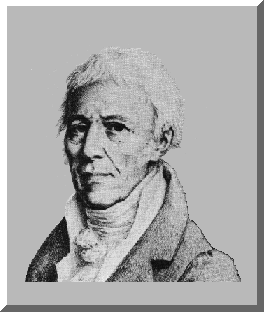
I have been reading "The Theory of Evolution" by Cynthia L. Mills. She is a scientific writer who has written articles for several magazines. In this book, she writes of the history of Evolution.
The first scientist to assert that one species changed to another species was not Darwin but Jean-Baptiste Lamarck. He was born in 1744. In 1793, he was assigned to the study of worms and insects at the Museum of Natural History in Paris. It was from this work that he formulated the idea of evolution.
In a lecture he gave in Paris in 1803, he stated "Do we not therefore perceive that by the action of the laws of organization . . . nature has in favorable times, places, and climates multiplied her first germs of animality... Then. . . aided by much time and by a slow but constant diversity of circumstances, she has gradually brought about in this respect the state of things which we now observe. How grand is this consideration, and especially how remote is it from all that is generally thought on this subject!"
Even earlier, in 1801, Lamarck had written "time and favorable conditions are the two principal means which nature has employed in giving existence to all her productions. We know that for her time has no limit, and that consequently she always has it at her disposal." The general scientific community did not listen and he died in poverty.
Early in his study of the invertebrates, he became convinced that organisms progressed from simple to complex forms. It wasn't until he inherited a fossil collection of mollusks and saw a chronological development within the collection that he began to believe that transmutation of species was possible.
Lamarck differed from Darwin:
- in his belief in spontaneous generation which is the idea that life can occur spontaneously from non-living matter. He believed that it must have occurred throughout the course of history in order to explain the missing links between species in the fossil records.
- in the theory of the "tendency to progression" (simple to complex) Darwin believed that life evolved as there was a need.
- Lamark did not believe that extinction occurred. It only appeared that way because animals evolved into another form. Darwin believed that extinction occurred and natural selection, which states that adaptions occur if the environment demands it. Then those animals that are adapted the best will survive while those that are not will die out or become extinct.
- Evolution is trying to understand nature and is itself evolving or changing in its ideas.
- that animal life is similar. From the worms to man, there is a pattern to the life forms.
- Science is both defined and limited by what man can deduce, think or imagine from the data.
Discussing Creationism: The Initial Argument
Part II: Two Questions about the Ark
Part III:The Volume of the Ark
Part IV: The Weight and Sturdiness of the Ark
Part V:What is a Myth
Part VI: Gilgamesh
Part VII: The Biblical View of Noah
Part VIII: Gathering of the Animals
Part IX Evolution
1 comment:
Wow...I just read the introduction to the discussion after reading your post and I must say my head is swimming. I don't generally get into these discussions and probably won't this one either...but we'll see..lol. I am glad that you have the courage and the boldness to take this on because I'm sure there are several people who will finally get off the fence and make a choice what they believe. I take the Bible literally, but only because I know that for myself, I will have peace in my heart standing before God.
Post a Comment